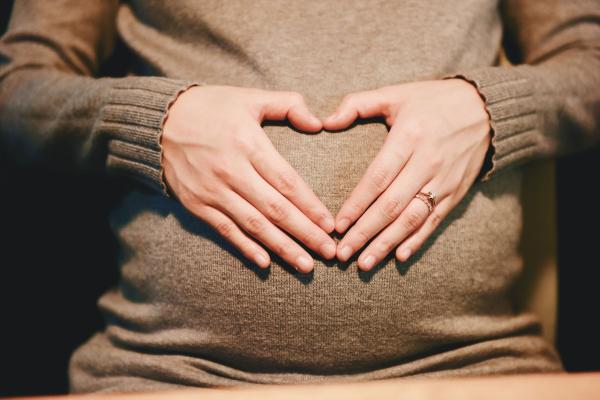Last December, my pregnant wife and I went in for her first ultrasound. Since the Pfizer–BioNTech COVID vaccine had just received emergency use authorization from the FDA, our initial question for her doctor was, “should pregnant women get the shot?” We were told, in so many words, “there's no reason not to, but it's up to you.” [1]
That wasn't a particularly helpful answer at the time, though there was little else her doctor could say; the evidence just wasn't available yet. Fortunately, the safety data on COVID immunization for pregnant women is beginning to trickle in, and, as it turns out, my wife's doctor was probably correct.
COVID risk during pregnancy
Before diving into the vaccine research, let's first establish that immunization for pregnant women seems like a generally good idea since expecting mothers and their children likely face a higher risk of morbidity and mortality from SARS-COV-2 infection. According to an April 22 paper published in JAMA Pediatrics,
In this multinational cohort study of 2130 pregnant women in 18 countries, women with COVID-19 diagnosis were at increased risk of a composite maternal morbidity and mortality index. Newborns of women with COVID-19 diagnosis had significantly higher severe neonatal morbidity index and severe perinatal morbidity and mortality index compared with newborns of women without COVID-19 diagnosis.
These outcomes are partially explained by the fact that most of the deaths in the study were concentrated in developing countries, where ICU services may not have been fully available. Women diagnosed with COVID-19 and comorbidities including overweight, diabetes, hypertension, cardiac and chronic respiratory diseases also faced a nearly four times greater risk of developing preeclampsia/eclampsia. “The findings should alert pregnant individuals and clinicians,” the authors concluded, “to implement strictly all the recommended COVID-19 preventive measures.”
Vaccines would clearly be included among such preventative measures, so long as they're safe. For that data, we turn to a study just published in the New England Journal of Medicine, which looked specifically at the two mRNA-based shots (Pfizer–BioNTech, Moderna).
The researchers surveyed more than 35,000 women between December 14, 2020, and February 28, 2021. Participant reports came from the "v-safe after vaccination health checker” surveillance system, the v-safe pregnancy registry, and the Vaccine Adverse Event Reporting System (VAERS). Injection-site pain was more frequently reported by pregnant women than their nonpregnant counterparts, though headache, myalgia, chills, and fever were less common in the pregnant group.
827 women out of the 3,958 enrolled in the v-safe pregnancy registry had completed a pregnancy. 115 (13.9%) ended in pregnancy loss, while 712 (86.1%) resulted in a live birth. Preterm birth (9.4%) and small size for gestational age (3.2%) were the most common adverse outcomes, but no neonatal deaths were reported. Spontaneous abortion occurred in 46 of 221 self-reported pregnancy-related adverse events in the VAERS database.
Adverse pregnancy and neonatal outcomes in vaccinated women were similar to outcomes in studies of pregnant women conducted pre-pandemic. However, differences in age, ethnicity, and “other social, demographic, and clinical characteristics” mean it's not a perfect comparison. Still, the researchers concluded:
Early data from the v-safe surveillance system, the v-safe pregnancy registry, and the VAERS do not indicate any obvious safety signals with respect to pregnancy or neonatal outcomes associated with Covid-19 vaccination in the third trimester of pregnancy.
The standard conditions apply. All the data was self-reported, meaning mistakes could have been made along the way. The sample size was relatively small, and the researchers could only assess adverse events from a distance. “More longitudinal follow-up, including follow-up of large numbers of women vaccinated earlier in pregnancy, is necessary to inform maternal, pregnancy, and infant outcomes,” the authors wrote to qualify their results.
But some evidence is better than no evidence. Combined with earlier research showing that vaccinated pregnant women likely pass on some level of immunity to their unborn babies, the NEJM paper helps provide a useful outline of how safe and effective the two vaccines may be in these sensitive cases.
Claims of serious injury or death in pregnant women following COVID-19 vaccination continue to circulate online, mostly based on individual reports from the VAERS database. Such instances appear to be rare (assuming they're valid) in light of this new evidence, but expecting parents are far more likely to see bad news retweeted thousands of times than a paper in the New England Journal of Medicine. We should also keep in mind that whatever risks there are, they exist against a backdrop of vanishingly small maternal mortality in the US.
Paul Offit, vaccine developer and pediatrician at the Children's Hospital of Philadelphia, summed up the situation in an email:
Pregnant women with COVID are more likely to be admitted to the hospital and require intensive care than women of the same age with COVID who aren't pregnant. It is reassuring to know that, after now studying tens of thousands of pregnant women who have received COVID vaccine, the rate of maternal or neonatal problems in pregnant women is the same in those who did or didn't receive the vaccines. Pregnant women can now be further reassured that COVID vaccination during pregnancy is both safe and effective.
[1] My wife ended up getting the Moderna shot in her second trimester. She experienced only minor side effects.




